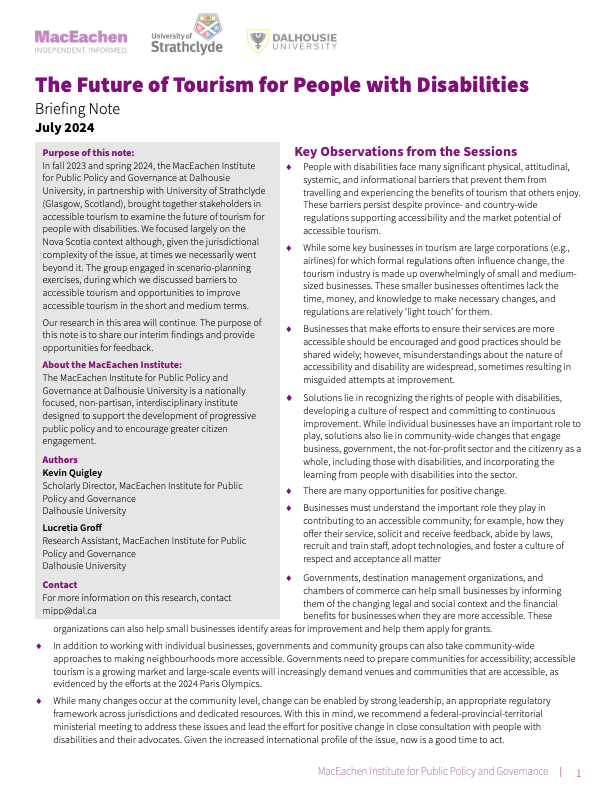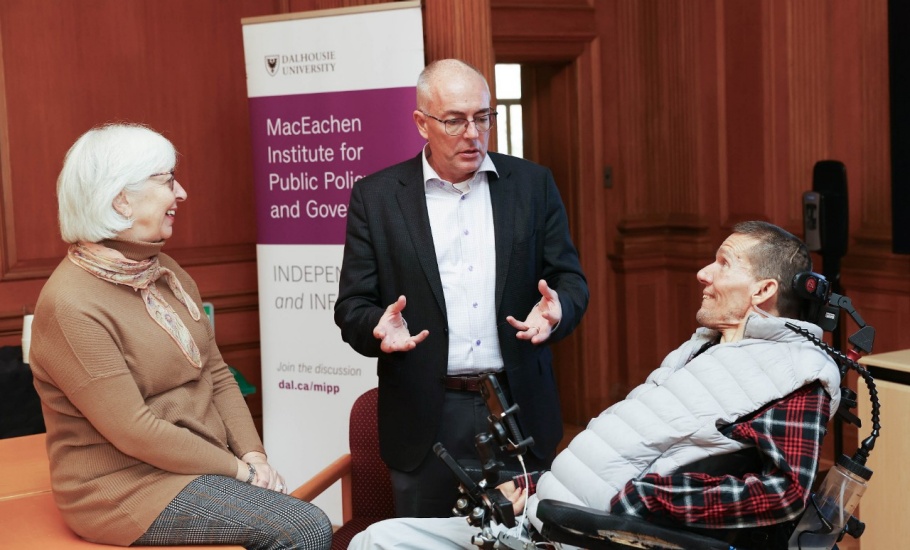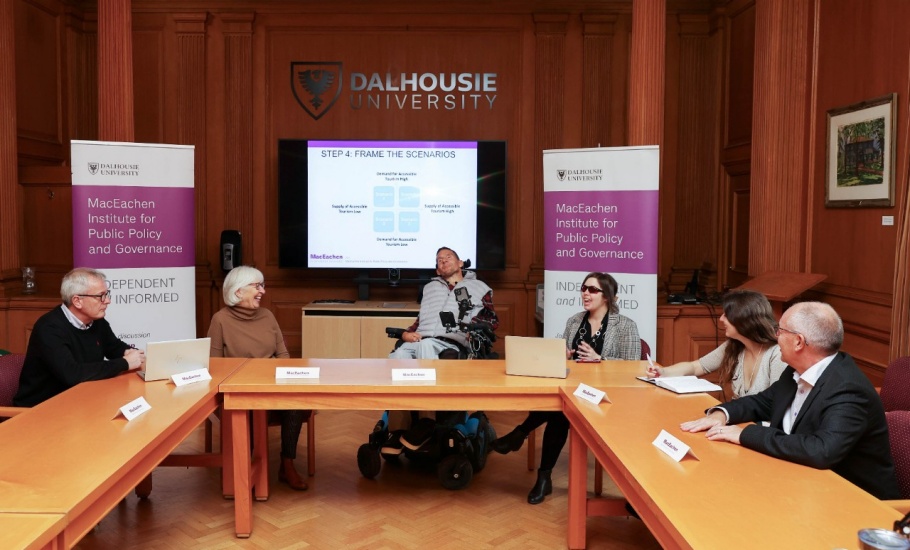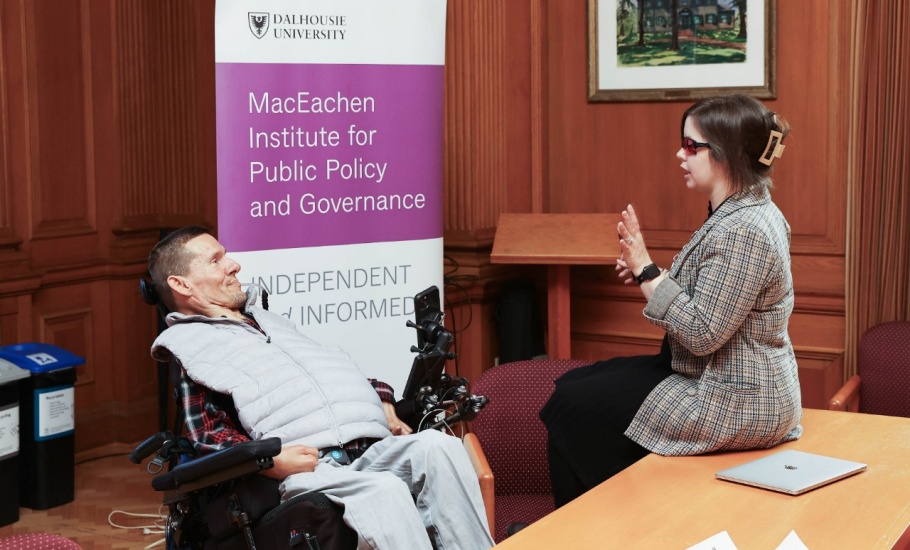Accessible Tourism
Accessible Tourism for People with Disabilities
Since 2020, the MacEachen Institute has been engaged in research activities focused on improving the accessibility of tourism for people with disabilities. The project is a partnership between the╠ř╠řin Glasgow, Scotland, and includes eight academic partners from five institutions. It uses scenario planning to explore how the tourism industry could adapt to better accommodate the needs of people with disabilities.
Read the Briefing Note:
Read the recommendations developed as a result of the Halifax scenario sessions. Please note that these findings are ongoing.
We welcome comments from community members and plan to revisit these recommendations to reflect ongoing feedback.
If you have comments or questions about the recommendations put forth in the briefing note, please contact Emily Truesdale, Communications Officer at emily.truesdale@dal.ca

About the Project
Funded by a╠ř, The MacEachen Institute, along with the University of Strathclyde and other partners, conducted research╠řin the area of tourism, the COVID-19 pandemic, and the potential impacts on people living with disabilities. The goals of the project were to:
- Examine different futures of tourism╠řfor people with disabilities, recognizing physical, attitudinal, knowledge, and systemic barriers;
- Recognize opportunities and constraints that may arise in these futures;
- Identify and recommend steps stakeholders can take to work towards the vision of accessible tourist destinations, products and; services for Nova Scotians, with a special focus on those with disabilities.
As part of this project, the investigators held a series of scenario planning sessions involving discussions about potential futures in tourism for people with disabilities and strategies to improve the accessibility of the tourism experience. The sessions were followed by a follow-up questionaire and interviews with a subset of participants.
Next Steps
This project is a comparative study, and similar research activities will take place in Glasgow, Scotland in 2024.
Research Outputs
The MacEachen Institute and its partners will produce a number of deliverables from the eventual findings of this research. This will include:
- Briefing notes
- Op-eds in regional and national publications
- Peer-reviewed articles in risk management and governance journals
- Public panel events at both the MacEachen Institute and the University of Strathclyde
- Present research to risk experts at conferences such as the
These materials will be posted here on the MacEachen Institute's website, and shared on our social media channels and in our newsletter. To be kept up-to-date on the release of findings from this research, follow the MacEachen Institute on social media and
Project Background
Scenario Planning Sessions
Researchers and participants during session 2 (Oct. 19, 2023)
╠ř
The scenario sessions, hosted by the MacEachen Institute at ║┌┴¤│ď╣¤═°, brought together 25 stakeholders from the tourism industry, disability advocacy organizations, and government, many with lived experience. Participants reflected a wide array of views and experiences, and developed policy responses for several imagined futures.
Session 1
The first session, hosted virtually, took place on Sept. 27, 2023, consisted of brief overviews of the economic impact of the tourism sector and its challenges and opportunities, and understanding disability and accessibility in the context of tourism. This session also reviewed the scenario planning process and the goals and timeline for the project.
Sessions 2 and 3
The second and third sessions were hybrid and hosted by the MacEachen Institute at ║┌┴¤│ď╣¤═° in Halifax, N.S. In these sessions, participants met for two consecutive days of scenario planning. The sessions, facilitated by the Institute's Scholarly Director Dr. Kevin Quigley, walked participants through four imagined scenarios of what accessibility could look like for the future of the tourism industry. During this discussion, note takers recorded what was said for future review.






